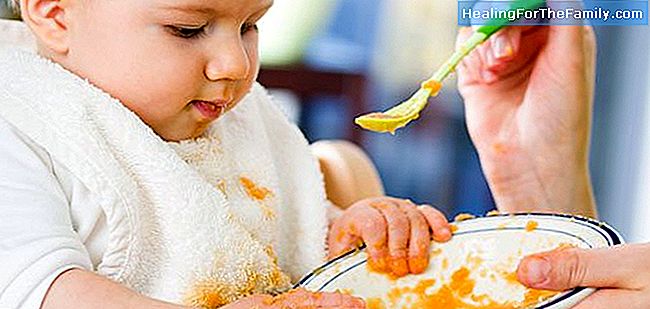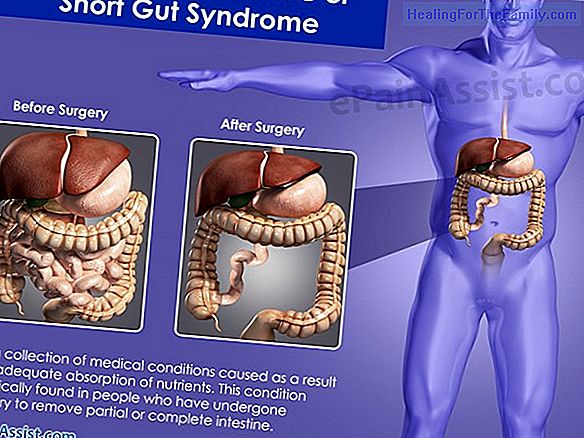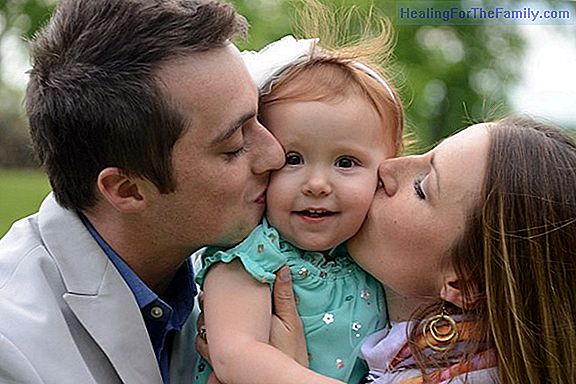Soft diet for children and babies
Soft diet is a non-irritating diet for the stomach. Its function is to facilitate digestion with the intake of light foods, which can be easily assimilated as it passes through the stomach. The time we spend doing the digestion depends basically on the food we have eaten. The fastest digestions, whi
Soft diet is a non-irritating diet for the stomach. Its function is to facilitate digestion with the intake of light foods, which can be easily assimilated as it passes through the stomach.
The time we spend doing the digestion depends basically on the food we have eaten. The fastest digestions, which last about an hour, are those made up of liquids and plant foods.
What is a soft diet for children?

On the other hand, when we eat high-fat foods such as red or lamb meat, fried eggs or highly flavored or sweetened foods with sugars, we will need three or more hours to integrate the nutrients into the bloodstream.
Soft diet is a diet that mechanically, chemically, physiologically and thermally is non-irritating. In order to reduce digestion problems as much as possible, we must not only take care of the type of food we are going to give the children, but also the type of preparation. Thus, in the soft diet foods must be boiled, steamed, baked or grilled using a minimum or minimum amount of oil to improve digestive tolerance.
In the preparation of foods for a soft diet should be excluded chili peppers, pepper, bell pepper and spices. Desserts should also be excluded, with the exception of yoghurts. And in addition, it is important to accompany the foods of abundant liquids, but you should avoid coffee and black tea (which are not recommended for children), chocolate and soft drinks.
When is a soft diet prescribed for children?
Soft diet is often prescribed to children with stomach problems. Thanks to this diet of easy assimilation in a few days the stomach usually regains its normal balance. However, it also helps patients with peptic ulcer, ulcerative colitis, gastritis, mucosal colitis, constipation, diarrhea, diverticulitis or diverticulosis and in diseases related to a malfunction of the gallbladder. It is also usually indicated after surgery, from the moment when the patient begins to tolerate liquids.
It is important to emphasize the importance of fluid replacement for the recovery of the child, since many of the stomach problems of children are associated with vomiting and diarrheal processes, which facilitate the loss of fluids and entail the consequent danger of dehydration. Therefore, to recover the loss of nutrients and mineral salts, it is important to make a good hydrolytic replenishment by drinking hydrotonic solutions such as alkaline lemonade prepared with water, the juice of 1 lemon, 2 tablespoons of sugar or saccharin, a pinch of salt and ½ tablespoon of baking soda.
Regarding the fiber of food, various studies have shown that dietary fiber does not generate overexertion or irritant effect on the mucosa of the intestine, but some children and adults may present problems of intestinal gas and inflamed belly (condition known as abdominal distension) ), so it is necessary to modify the nutritional scheme to avoid discomfort.
Foods allowed on a soft diet
- Grilled, baked or boiled chicken or turkey breast
- Grilled, baked or boiled fish
- White rice
- Cooked carrot
- Apple
- York ham
- Bananas
- Yogurts
Here are some proposals for soft diet recipes for children and babies.
Marisol Nuevo. Editor of Guiainfantil.com












